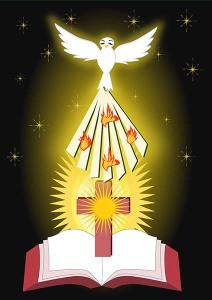On Mondays, I answer questions frequently asked by those considering a return to the Catholic Church. How do I know this stuff? I was away for more than 30 years myself, and am the co-author of When They Come Home: Ways to Welcome Returning Catholics, a book for pastors and parish leaders interested in this ministry.
My parents had me baptized Catholic when I was a baby. Why do I need to be confirmed, and why do Catholics confirm people when they’re so young?
The Catechism of the Catholic Church says confirmation “perfects Baptismal grace.” We pledge through confirmation to be a

disciple and witness to Christ in all aspects of our lives. While others speak those vows for us if we are baptized as infants, confirmation provides the great gift of making the pledge ourselves.
In the Roman Catholic tradition, confirmation comes at the age of reason or discretion—when people understand right from wrong morally and spiritually—which can be anytime after about seven. The bishop decides the appropriate age for his diocese; in the United States, that’s often between twelve and fourteen.
The Eastern tradition typically confers baptism, communion, and confirmation at the same time to infants. According to the Catechism, the Roman tradition began separating confirmation and baptism in part because of the growth of dioceses, especially in rural areas, which would have prevented bishops from being present at all baptisms. Typically, but not always, in the Roman tradition, the bishop is responsible for all confirmations within his diocese.